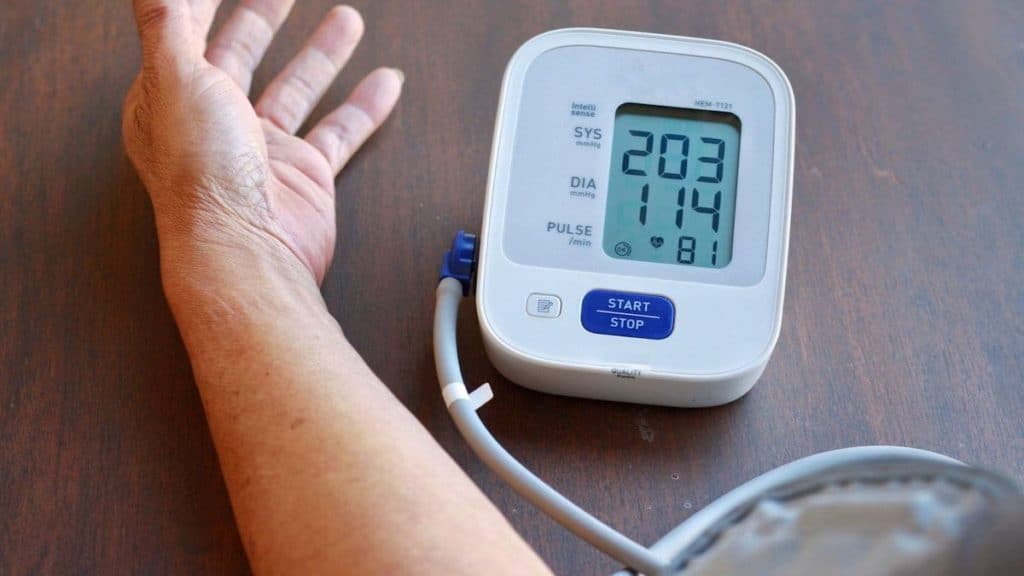Everyone deals with stress at some point, whether it's the stress of paying bills or the stress of trying to get a coveted promotion at work. As long as you manage stress effectively, it shouldn't cause any ill effects to your daily life. Unfortunately, chronic stress is a serious problem for men and women throughout the United States. This type of constant stress has lasting effects on the body and mind, interfering with your ability to focus on what matters most in your life. Keep reading to learn more about the physical symptoms of stress and how they can impact your health.
Acute vs. Chronic Stress

Stress is a normal part of life. In fact, some types of stress responses have a positive impact, motivating you to achieve your goals or escape dangerous situations. The "good" type of stress is acute, meaning it only lasts for a short time. Once you meet your deadline or get out of harm's way, your body returns to its normal state and stress responses are alleviated. During an episode of acute or short-term stress, you may experience the following symptoms:
- Muscle pain
- Fatigue
- Muscle tightness
- Headache
- Nausea
- Faster heartbeat
- Increased breathing rate
- Abdominal pain
That's not the case with chronic stress — intense stress that never goes away. If you experience long-term stress, your body and mind are stuck in fight-or-flight mode, increasing the risk of stress-related illnesses and negative impacts on your quality of life. Chronic stress has been linked to premature aging, immune system dysfunction and changes in the structure and function of the brain, along with several physical and psychological ailments.
11 Ways Chronic Stress Impacts Your Health

Acute stress and chronic stress have different effects on the body and mind, causing a variety of physical reactions. Chronic stress typically has a more significant impact, increasing the risk of various health problems if it's not managed effectively. These 11 problems have been linked to a sustained physiological response to stress.
1. Depression and Anxiety
Depression and anxiety symptoms have been linked to an imbalance of neurotransmitters in the brain. Neurotransmitters carry messages from nerve cells to target cells, enabling your body to perform a wide range of functions. Chronic stress may increase the risk of mental health disorders such as depression and anxiety by increasing the amount of serotonin, gamma-aminobutyric acid (GABA), norepinephrine or acetylcholine available, creating or worsening an imbalance of these important neurotransmitters. Accompanying symptoms of depression and anxiety disorders may make it difficult to concentrate on work, consume a healthy diet, maintain positive relationships or continue doing the things you love.
2. High Blood Pressure

When you're under stress, your body has a physical response by releasing hormones that increase your heart rate and cause your blood vessels to narrow. This is the flight-or-fight response in action. After an episode of acute stress, your heart rate returns to normal. If you're dealing with chronic stress, however, your heart rate may remain elevated over time, even in the absence of a stressful event. Your blood vessels may also remain constricted, forcing your heart to work harder to pump blood to other parts of your body. This extra effort can lead to high blood pressure.
Untreated, high blood pressure can have many negative effects on your body; It increases the risk for many serious health conditions, including Type 2 diabetes, chronic kidney disease, stroke, heart attack and heart failure. Uncontrolled high blood pressure has also been linked to an increased risk of dementia.
3. Heart Disease
According to the American Heart Association, chronic stress makes it more likely that you'll engage in poor health behaviors, increasing your risk of heart disease. These behaviors include smoking, overeating, alcohol misuse, not getting enough exercise and not taking your medications as prescribed. When you're dealing with chronic stress, you may cope by smoking a cigarette, indulging in more desserts than usual or sitting on the couch instead of walking around your neighborhood, all of which increase the risk of coronary artery disease and other heart problems. Cardiovascular disease increases the risk for stroke, heart attack, heart failure and sudden death due to cardiac arrest.
4. Irregular Menstruation

As noted previously, stress triggers the release of several hormones. One of these hormones, cortisol, has an adverse effect on the hypothalamus, the part of the brain responsible for menstruation. Under normal conditions, the hypothalamus releases chemicals that trigger the pituitary gland to stimulate the release of estrogen and progesterone from the ovaries. Stressful conditions interfere with this sequence of events, which may cause you to miss periods, have lighter periods or have a longer or shorter menstrual cycle than usual. Irregular menstruation may cause spotting between periods, heavier-than-normal bleeding during a period or bleeding with sexual intercourse.
5. Obesity
Suffering from a chronic source of stress increases the risk of obesity in several ways. For example, it interferes with your ability to regulate your own behavior, which may lead to overeating, reduced physical activity and other unhealthy habits. Chronic stress also interferes with hormone production and may have a direct impact on the reward center of your brain, causing you to crave high-calorie foods that are high in sugar and fat. If the effects of chronic stress lead to obesity, you may increase your risk of Type 2 diabetes, high blood pressure, heart disease, stroke, sleep apnea and other serious health conditions.
6. Chronic Migraines

For some people, chronic stress is part of a vicious cycle that causes severe migraines, which are headaches that may or may not be accompanied by nausea, vomiting or visual disturbances. Even worse, once the stress finally eases, some of those people experience "letdown" migraines, interfering with their ability to relax and enjoy life. Researchers believe that chronic types of stress may lead to structural and functional changes in the brain, increasing the risk for migraines. Over time, chronic migraines may increase your risk of stroke, heart defects and other health problems.
7. Decreased Sex Drive
One of the damaging effects of stress is one that you may not have considered — a decreased sex drive. Chronic stress may affect the amount of testosterone in your body, reducing your libido. When you're stressed, you may also have trouble focusing on your partner, making sexual activity less of a priority. Over time, decreased sex drive may make it difficult to achieve or maintain an erection.
8. Hair Loss

Among the many effects of chronic stress is hair loss, a symptom known as telogen effluvium. During the telogen phase of the growth cycle, the hair follicles are dormant, so no hair growth occurs. Chronic stress forces many hair follicles into the telogen phase, which may cause large amounts of hair to fall out when you're showering or brushing your hair. Hair loss makes the skin on your scalp more vulnerable to sun damage, and it also gives you a little less protection in the event of a fall, which may increase your risk of head injuries.
9. Gastrointestinal Issues
High levels of stress have been shown to affect gut motility, or the speed at which food moves through your digestive tract. Changes in gut motility are associated with heartburn, diarrhea, nausea, vomiting, lower abdominal pain and constipation. If you experience gastrointestinal issues as a physical effect of chronic stress, you may have difficulty going to work or enjoying family activities due to frequent bouts of nausea and vomiting. Severe heartburn and diarrhea can also interfere with your body's ability to absorb vitamins and minerals, increasing your risk of nutrient deficiencies.
10. Insomnia and Chronic Fatigue

Some of the physical stress effects on the body interfere with your ability to get plenty of high-quality sleep, even with acute stress. When you're worried about school, work, relationships and other matters, it's hard for your mind to relax when it's time to go to bed. You may find yourself lying awake with your mind racing, just hoping that you fall asleep sometime soon. Even if you fall asleep quickly, you may wake up several times during the night due to high levels of stress. Long-term insomnia increases your risk for heart disease, high blood pressure and other health problems.
11. Skin Conditions
Long-term exposure to stress even increases your risk of developing a skin condition. If you already have a skin condition, chronic stress may exacerbate it, leading to a worsening of your symptoms. For example, chronic stress has been linked to flares of eczema, psoriasis and acne. Without treatment, your skin condition may lead to frequent itching, scabbing, scarring and other physical effects.
How Do You Manage Stress?

It's important to manage stress carefully so it doesn't cause any of the physical problems described above. The good news is that there are many things you can do to relieve emotional stress and make it easier to live a healthier life. Your options include studying relaxation techniques, seeing a chiropractor, getting acupuncture treatments, attending behavioral therapy sessions, working with a physical therapist and getting regular massages. It's also important to eat nutritious foods and exercise regularly. Managing your stress and maintaining your overall wellness are the keys to avoiding these serious health problems.
Enhance Your Wellness With Northeast Spine and Sports Medicine

Northeast Spine and Sports has experienced, compassionate health professionals available to help you relieve stress and reduce your risk of serious health problems. Our team includes physicians, physical therapists, chiropractic professionals and acupuncturists to ensure you have a full complement of services available to meet your unique needs. To learn more about our services and book a consultation, call Northeast Spine and Sports at (732) 653-1000. You can also book an appointment on our website.


